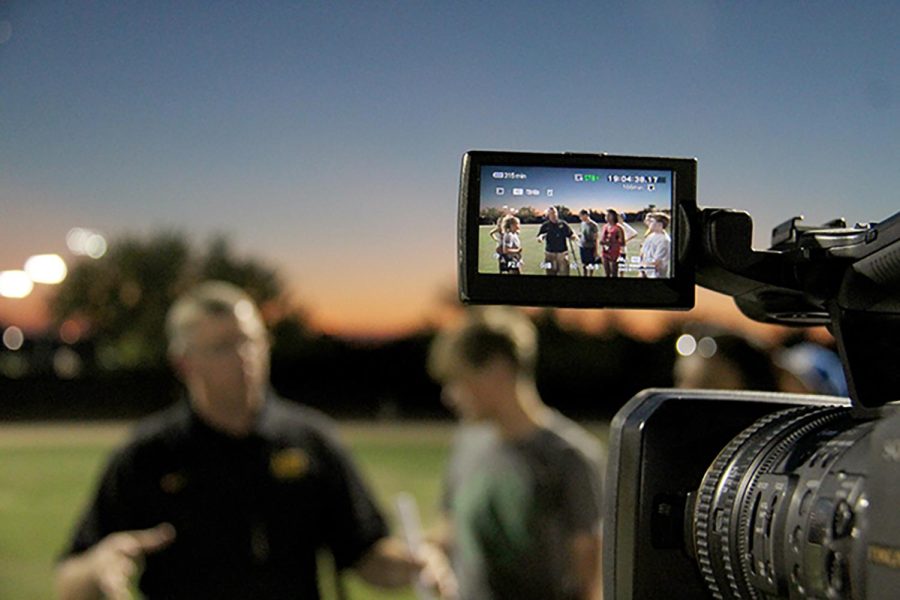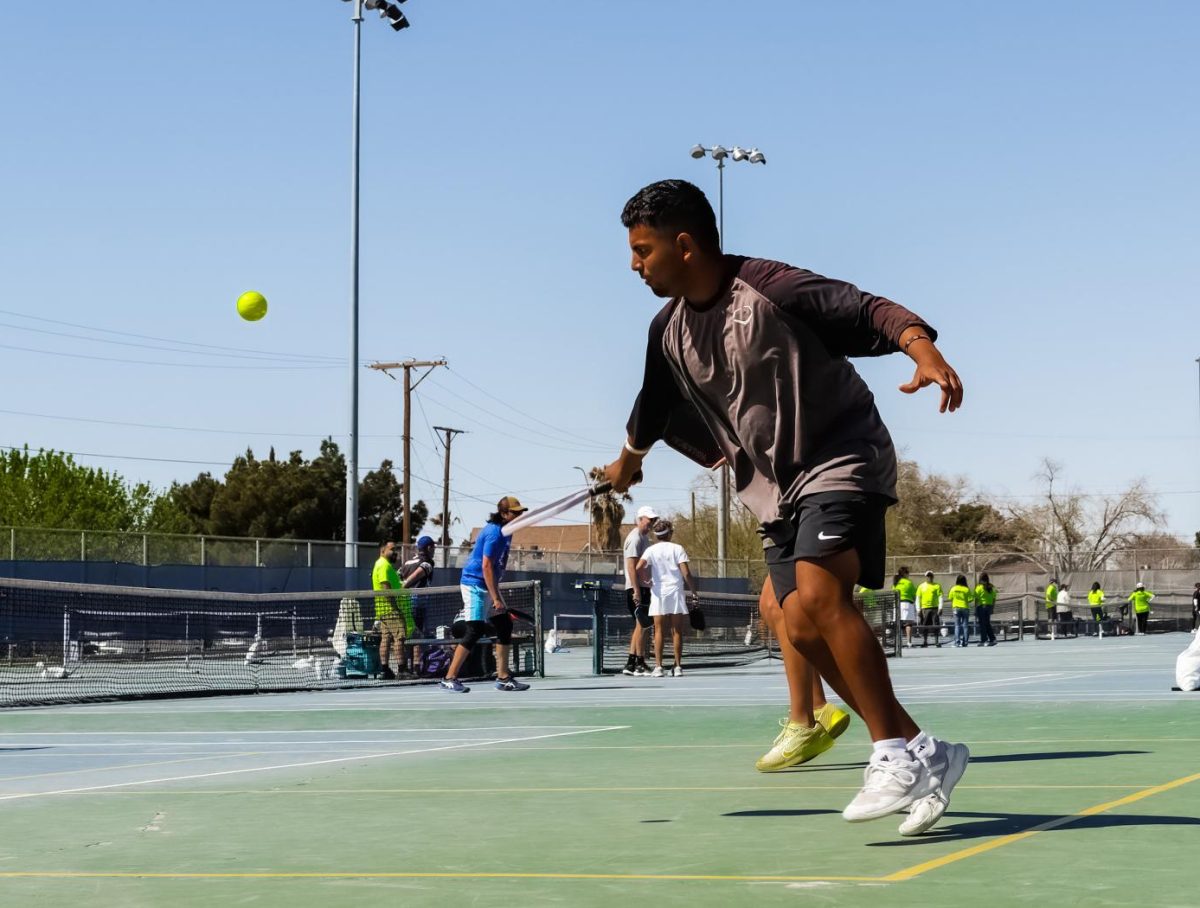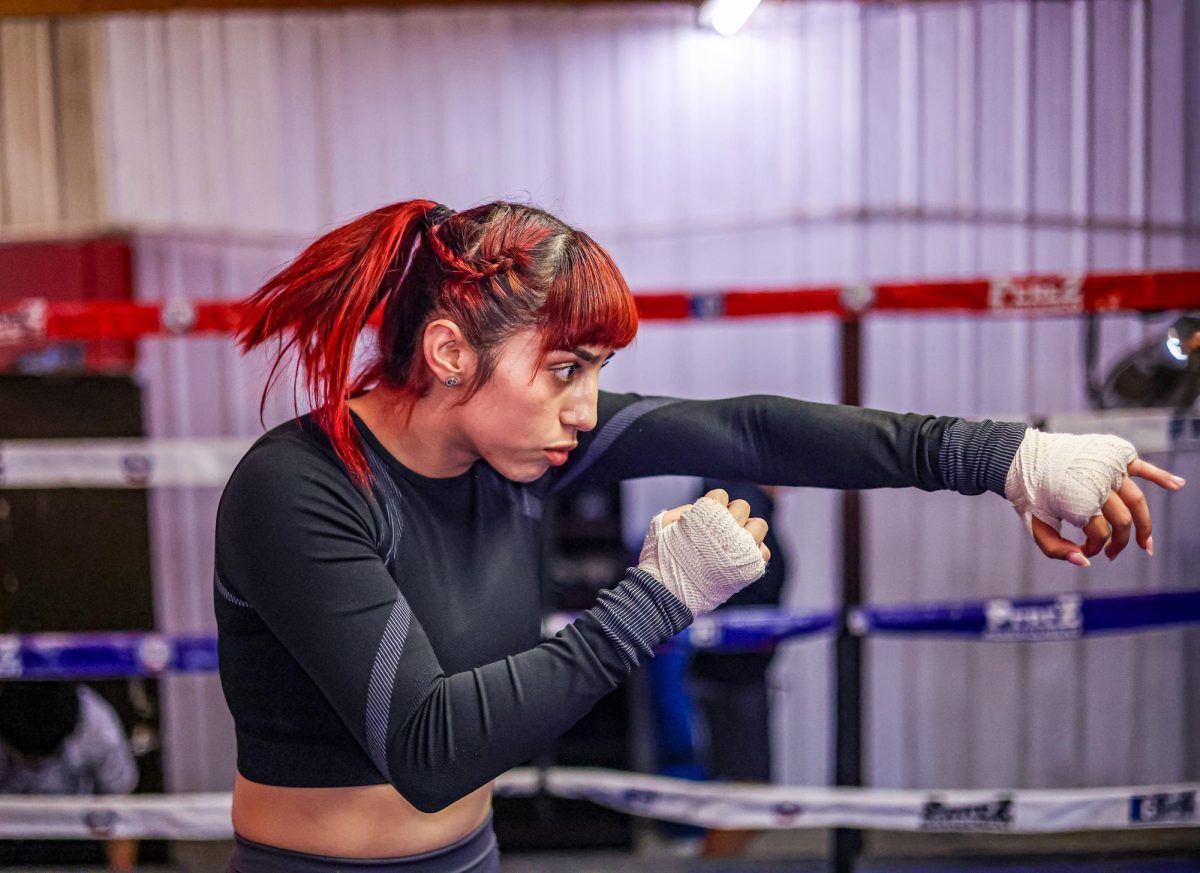For many journalists, the journey begins with a natural talent for writing. For Roberto José Andrade Franco, it was a complete accident.
Raised in El Paso, with parents from Ciudad Juárez, Franco faced challenges in his academic career. Close to flunking out of graduate school at Southern Methodist University, he received feedback from his professors, that his writing skills were lacking.
One professor advised him to write about subjects that truly interested him. Taking that advice to heart, Franco started writing about boxing. In 2016, he expanded his focus to include baseball and soccer as a freelance journalist. For the past two and a half years, he has been a writer for ESPN.
Franco explained that being a Hispanic journalist in sports media gives certain advantages in a white male dominated field. In sports like baseball and boxing, where many athletes only speak Spanish, Franco can communicate with them, understand their cultural norms, and the cultural differences that shape their perspectives.

Despite these advantages, Franco acknowledges that he faces ongoing challenges.
“One of the consistent things that I don’t think goes away, you just have to convince people that the stories that I want to write matter,” said Franco. “Sometimes that’s kind of like hard to sell, to let your editor know like, listen, I know people are going to read these stories and it’s not going to be the traditional audience that you’re used to, but also there’s an entire segment of the population whose interests aren’t being addressed.”
Stories like Franco’s “‘She made us happy: The all-star dreams of Uvalde’s biggest José Altuve fan,” which shares the story of 10-year-olf Tess Mata who was killed in the Robb Elementary shooting in Uvalde on May 24, 2022.
Franco shared anecdotes of Mata’s life and her passion for softball as he spent time with her family in Uvalde in the aftermath of the shooting. While it was a heavy task, Franco understood the impact a mass shooting can have on a community seeing the effect of the Aug. 3, 2019, Walmart shooting in El Paso he felt it was an important story to tell.
“It’s hard to say that I was proud of that story just because of what it was,” said Franco. “I think that one was something that was very difficult to write. In that case also being Latino and kind of understanding to some extent the impact that a mass shooting has on your home, being from here (El Paso), I thought that was important.”
Franco shared valuable advice for journalists, particularly Hispanic, Latino, and El Pasoan writers, discipline is the most important factor for success in this field.
“Discipline and understanding that you’re going to fail to a certain extent and that you don’t take that as like a dead-end kind of thing,” said Franco. “I mean (when) you’re writing, everything about writing is failing, there’s an editing process and there’s no perfect first draft ever.”
Franco shared that as he sees the journalism world evolve, he hopes to see more Hispanics and Latinos not only in reporter roles but also in leadership positions.
According to the 2021 Sports Media Racial and Gender Report Card by the Institute for Diversity and Ethics in Sports, Hispanic and Latinx individuals made up 10% of assistant sports editors, 11% of copy editors/designers, 5% of reporters, 14% of web specialists, and 5% of upper management positions.
While Franco originally did not set out to be a journalist, his work and experiences show the importance of having Hispanic and Latino voices in media to share authentic narratives that can resonate with their communities.
Ximena Cordero is a staff reporter and may be reached at [email protected]








